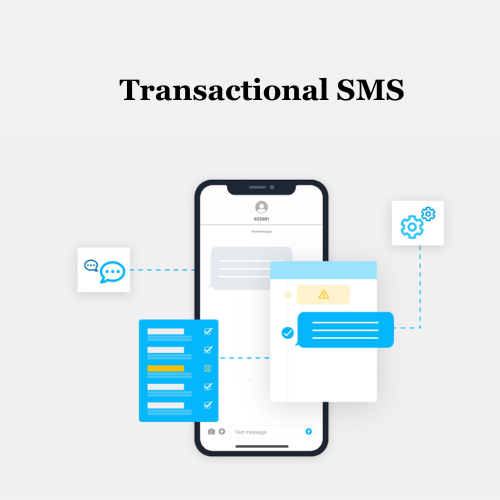In today’s complex business environment, effective payroll management is crucial. One critical aspect of this is the creation of paycheck stubs. These documents serve as a detailed record of an employee’s earnings and deductions. However, different types of employees require different information on their check stubs. Understanding how to customize these stubs can improve transparency, compliance, and employee satisfaction.
The Importance of Customizing Check Stubs
A one-size-fits-all approach doesn’t work in payroll management. Customizing check stubs ensures that all necessary information specific to different employee types is included. This customization not only helps in maintaining accurate records but also enhances communication between the employer and employees.
For example, salaried employees might need a clear breakdown of their salary components, while hourly workers require details about the hours worked and overtime. Freelancers and contractors will look for specifics on project-based payments and deductions. By tailoring check stubs, businesses can address these varied needs efficiently.
Key Components of a Check Stub
Before delving into customization, it’s essential to understand the key components of a check stub:
- Employee Information: Name, address, and employee ID.
- Employer Information: Company name, address, and contact details.
- Pay Period: Start and end dates of the pay period.
- Earnings: Breakdown of regular, overtime, and other earnings.
- Deductions: Taxes, benefits, and other withholdings.
- Net Pay: Total earnings minus deductions.
Customizing Check Stubs for Salaried Employees
Regular Salaried Employees
For salaried employees, consistency and clarity are key. Their check stubs should include a clear statement of their fixed monthly or bi-weekly salary. Additional fields can detail any bonuses, incentives, or allowances.
Exempt vs. Non-Exempt Employees
It’s important to distinguish between exempt and non-exempt salaried employees. Exempt employees typically do not receive overtime pay, so their stubs should clearly outline their fixed salary and any additional earnings. Non-exempt salaried employees, however, may receive overtime pay, which should be clearly itemized.
Customizing Check Stubs for Hourly Employees
Hours Worked
Hourly employees’ check stubs should prominently feature the number of hours worked. This includes regular hours, overtime, and any additional hours worked during holidays or weekends. A free check stub maker can be particularly useful in ensuring accurate calculations and clear presentations of these hours.
Overtime and Shift Differentials
Overtime pay should be clearly itemized, along with any shift differentials. Providing this level of detail helps in maintaining transparency and ensures employees are aware of how their pay is calculated.
Customizing Check Stubs for Freelancers and Contractors
Project-Based Payments
Freelancers and contractors often work on a project basis. Their check stubs should include details of each project, payment terms, and any milestones achieved. This helps in tracking payments and maintaining clear records of work completed.
Deductions and Taxes
Unlike regular employees, freelancers and contractors may have different tax obligations. Custom check stubs should account for these differences, clearly listing any tax deductions or other withholdings.
Utilizing Technology for Check Stub Customization
Free Check Stub Maker Tools
Technology has made it easier than ever to create and customize check stubs. Free check stub maker tools are available that allow businesses to tailor check stubs to meet the specific needs of different employee types. These tools offer templates and customization options that ensure all necessary information is included and accurately presented.
Integration with Payroll Systems
Many modern payroll systems offer integrated check stub creation features. These systems can automatically generate customized check stubs based on the employee’s data, reducing manual errors and saving time.
Legal Considerations in Customizing Check Stubs
Compliance with Labor Laws
It’s crucial to ensure that customized check stubs comply with federal and state labor laws. This includes accurately reporting earnings, deductions, and taxes. Employers should stay informed about any changes in labor laws to ensure ongoing compliance.
Transparency and Employee Rights
Providing detailed and transparent check stubs helps in upholding employee rights. It ensures that employees can clearly understand their earnings and deductions, which is vital for maintaining trust and satisfaction.
Best Practices for Effective Check Stub Customization
Regular Updates
Regularly updating check stub templates to reflect any changes in employee compensation or deductions is essential. This ensures that all information is current and accurate.
Clear Communication
Employers should communicate with employees about the components of their check stubs. This helps in avoiding misunderstandings and ensures that employees know where to find information about their pay and deductions.
Employee Self-Service Portals
Providing employees with access to self-service portals where they can view and download their check stubs can enhance transparency and convenience. These portals can also allow employees to update their personal information, ensuring that check stubs always contain accurate data.
Conclusion
Customizing check stubs for different employee types is a vital aspect of effective payroll management. By tailoring these documents to meet the specific needs of salaried employees, hourly workers, and freelancers, businesses can improve accuracy, compliance, and employee satisfaction. Utilizing tools like a free check stub maker can simplify this process, ensuring that all necessary information is included and clearly presented. In the end, the goal is to foster a transparent and efficient payroll system that benefits both employers and employees.


